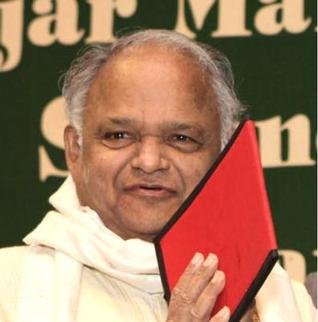India's malarial campaigner: Dr V P Sharma
September 11, 2013 | Wednesday | Features | By Rahul Koul Koul
India's malarial campaigner: Dr V P Sharma
Dr Vinod Prakash Sharma
With over forty years of research and field experience, Dr V P Sharma is considered to be an authority on malaria and vector biology. It was he who conceptualized a novel bioenvironmental malaria control strategy as an alternative to spraying chemicals and successfully demonstrated malaria control in various eco-epidemiological settings. As a result of his indefatigable efforts, today we have technologies to fight malaria which are environmentally safe, cost effective, produce sustainable impact on the society and are free from ecological hazards that are often associated with DDT and other insecticides.
Dr Sharma believes that at present research in malaria is satisfactory but application is not. He explains, "Cracking genetic codes of vectors is one thing and malarial control at the grassroot level is other. The latter may seem to be easy but it is what we need most in present circumstances. The genetic way too has its advantages but these not the need of this hour."
Born on April 6, 1938 in Bulandshahr district of Uttar Pradesh in India, Dr Sharma did his early education from his native place and continued upto masters degree in 1960. Later he did D.Phil in 1964 and D.Sc in 1979 from Allahabad University. He was post doctoral research associate, University of Notre Dame and Purdue University, USA (1965-68). Later on his return to India, he functioned as a Pool Officer ay Forest Research Institute, Dehradun (1969-70). Changing his profile in the later part, he worked as the senior scientist at the World Health Organization (WHO)/ Indian Council for Medical Research (ICMR) unit on genetic control of mosquitoes, New Delhi (1970-75). Dr Sharma was deputy director, Vector Control Research Centre also called as Malaria Research Centre (1975-1982).
Known as the founding director of the National Institute of Malarial research (NIMR), he laid the foundation of the basic and applied research for prevention and control of malaria in the country. Under his leadership, NIMR had earned international reputation of excellence in malarial research and control, and established linkages with the leading national and international laboratories. His research papers have high citation index. His scientific contributions in malaria, dengue and chikengunia, have been translated in other languages as well. He superannuated in 1998 as the additional director general of ICMR.
On being asked about the difference in research during his times and now, Dr Sharma exclaims, "Scenario hasn't changed at all. They continue to look at the alternate methods of control, diagnostic methods of controlling involving community for delivery of health." About his return from abroad, he explains, "Though I was disappointed initially when I came back to India, but I am most satisfied how the things turned out later. The research no doubt has been best here but what is needed is the better coordination and focus on control measures."
Dr Sharma is a fellow of all the three science academies i.e. Indian National Science Academy, New Delhi; Indian Academy of Sciences, Bangalore; National Academy of Sciences, India and several other learned societies. Dr Sharma has published about 400 scientific papers with high impact factor, and several books. He was invited to work on various WHO panels since 1980s and was invited by the reputed international agency to write and review Global Fund for AIDS, Tuberculosis and Malaria proposals for South East Asia Regional countries. He was the principal architect for writing World Bank and other projects for the Indian Programme in malaria control. He was actively associated with developing malarial control strategies which have converged to become important component of the WHO's malaria elimination strategy.
Dr Sharma was the recipient of Ranbaxy Award, ICMR MOT Iyengar Award in 1990. Also the winner of numerous other awards throughout his career including prestigious Padmashree in 1992, he was most recently conferred the Gujar Mal Modi Science Foundation for year 2013.
He refuses to do any prediction on the complete elimination of malaria from the country. Though optimistic to the core, he is not very appreciative of the prevailing scenario in the country. "It is very difficult to predict when it will happen in a vast country like India. Efforts are being made and we have enough technologies but implementation has been a big issue. But what can we do when there are natural calamities like Uttarakhand." However, Dr Sharma concludes with on an enthusiastic note. "I am ready and available to serve the nation. Whenever I am needed, I shall be here to play any role," says a man who dedicated four decades for research, promotion and application of science and technology leaving an everlasting effect.









